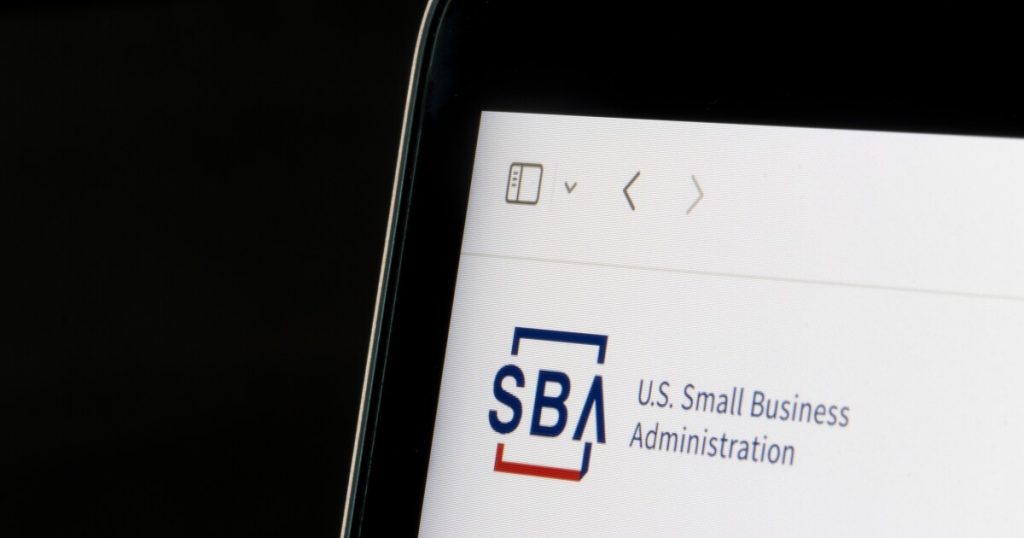Some lenders along with Democrats in Congress say that a recent Small Business Administration policy change on immigration has overshot the mark, blocking people who are in the country legally and even some U.S. citizens from accessing government-guaranteed loans.
The policy limits access to SBA-backed loans to U.S. citizens and lawful permanent residents, which means that people who are in the country illegally and those who have temporary legal status are shut out. It was outlined in a March 7 SBA policy notice that was inspired by President Trump’s Jan. 20 executive order requiring government agencies to enforce immigration laws more strictly.
Under the previous guidelines, businesses in which legally residing foreign-born individuals held minority ownership stakes were eligible for SBA backing.
At a congressional hearing last week, Rep. Hilary Scholten, D-Mich., linked the new citizenship policy to what she described as a “sharp decrease in originations over the last several months.” One SBA lender in Michigan was forced to reject several applications due to the policy, Scholten added.
“To be clear, we’re talking about work-authorized legal immigrants who may not necessarily meet the citizenship threshold,” Scholten said. “Think about the impact on the economy. It’s devastating.”
A Scholten spokesperson did not respond to a request for comment by deadline.
Speaking at the same Sept. 16 hearing, Rep. Gil Cisneros, D-Calif., voiced concern that the SBA policy is blocking even loans to U.S. citizens married to foreign-born spouses, including spouses who are here lawfully. That’s because many mom-and-pop firms are co-owned or co-operated by spouses. Under the SBA’s policy, all owners of a business must be citizens or permanent residents in order to qualify for a government-backed loan. The policy also extends to foreign-born residents who hold management positions.
“Love holds no bounds,” Cisneros said at the House Small Business Committee’s hearing. “You can’t always say you’re going to fall in love with a U.S. citizen.”
Chris Hurn, president and CEO of an active SBA lender, Phoenix Lenders Services, and its parent company, the $291 million-asset Community Bankshares in La Grange, Georgia, called the citizenship policy an overreach.
Hurn said he is “fully supportive” of President Trump’s efforts to promote foreign investment from major corporations. He argued that it should be encouraged in the small business space, too.
“I don’t understand why that same thinking doesn’t apply to the piece of the economy that’s almost 50% of the U.S. payroll,” Hurn told American Banker.
Echoing Cisneros’ comments, Hurn said the citizenship policy blocks mom-and-pop companies from getting SBA loans if a legally residing foreign-born spouse helps run the business.
“To me that’s baffling,” Hurn said. “These aren’t the precedents we want to set.”
Community Bankshares
Banks around the country — including Community Bankshares — “have had to turn away a business loan or two or three or more because of this new environment we find ourselves in,” Hurn said.
Thomas Kimsey, the SBA’s associate administrator for capital access, also testified at the Sept. 16 congressional hearing. He called the citizenship requirement “a vital management tool.”
“Verifying citizenship is very important,” Kimsey said. “That’s one of the things we’ve put in place, to verify 100% of the ownership.”
Stricter immigration enforcement has been a centerpiece of President Trump’s political career since the start of his first presidential campaign 10 years ago. While the SBA has never permitted borrowers without legal immigration status to apply for loans, it hasn’t escaped criticism over the issue.
The agency recently came under attack after an audit determined that last year it guaranteed a $783,000 loan to a business partially owned by a resident who was in the country illegally. SBA hasn’t explained how the loan, which violated even the previous standard, was approved.
In April, Republican lawmakers introduced a bill that would codify the SBA’s restrictive citizenship policy. It passed the House in June but has not been addressed by the Senate.
At the same time the Trump-era SBA changed the agency’s citizenship policy, it also moved to tighten lending standards and eliminate Biden-era fee waivers on small-dollar loans. Trump administration officials have argued that the earlier waivers led to an increase in early-term loan defaults, along with a decline in the financial health of the SBA’s flagship 7(a) loan guarantee program.
Under 7(a), the SBA’s largest loan program, the agency provides guarantees of 50% to 85% on loans up to $5 million. The SBA approved transactions totaling $7 billion between June and August 2025. That was down significantly from $8.8 billion the same three months in 2024, but the confluence of the tightened underwriting standards, a

